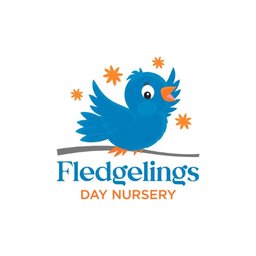EYFS Teaching Assistant/Lunchtime Playleader
To deliver the Early Years Curriculum to our Early Years pupils, working in partnership with parents, teachers and the school to establish a supportive and nurturing learning environment in which children make excellent progress.
Main Classroom Duties
- To support individuals and groups to help them learn.
- To establish an effective and purposeful learning environment in partnership with the teachers and other colleagues.
- To support teachers in assessing the needs of individual children.
- To observe, record and feedback information on pupil performance.
Main lunch Duties
- To supervise, care, integrate and play with the children through directed sports or by teaching activities such as traditional playground games
- To make the lunchtime an enjoyable and exciting part of the school day where we are all consistently strive to improve this experience
- To prepare the playground/dining hall prior to lunch and tidy all areas following lunch to which you get allocated paid time for each day
- To work cooperatively with other team members/school staff and show a flexible and enthusiastic approach to your position
- Emphasis on working with the children and staff should not to cluster together. This ensures safe monitoring of all playground
- Working with individuals and groups of children of all levels of ability and preparing activities.
- Organising prayer at the start of meals
- Supporting children to become independent at eating (e.g. teaching children knife and fork skills)
Other Key Aspects of the roles
- Assisting with the general welfare and safety of all pupils at all times, including the administration of basic first aid (under the guidance of the school ‘First Aiders’, and caring for children who are unwell, including changing their clothes if appropriate.
- To keep all behaviour files and first aid documentation up to date
- Undertaking other practical tasks to assist in the running of the school, as the Head of School or designated member of staff requires.
- To assist in creating materials for curriculum delivery and display boards
- To plan, lead and facilitate group activities
- To plan and lead one to one teaching and intervention
- To promote inclusion of all the pupils in the school, including those with physical, learning and behaviour difficulties
- To assist with behaviour management within and outside the classroom
- To work with the classroom teachers to implement Individual Education Plans and develop resources for pupils who have: English as a second language, speech or language impairments or behaviour that interferes with learning and relationships
- To assist pupils’ social development, progress and achievement outside the classroom
- To take safeguarding seriously and be observant and follow the school’s safeguarding policy
Wider School Support
- To maintain pupil and family confidentiality
- To attend regular meetings and training as required
- To communicate with staff, pupils, parents, governors and other members of the local community as appropriate
Performance Measures
- To ensure children make progress towards the Early Learning Goals.
- To demonstrate a commitment to building positive family relationships and professional relationships within the school.
Skills
- Well-developed interpersonal skills - the ability to communicate effectively orally and in writing to a range of audiences.
- Able to plan, organise and prioritise.
- Able to manage good communications systems.
- The ability to enthusiastically and loyally promote the school’s vision through behaviour, words and actions.
- The ability to make decisions, in consultation with the Class Teacher, EYFS Coordinator, Head of school, Senior Leadership Team, Staff, Parents and the wider community as appropriate
- The ability to be proactive
Competent in the use of ICT.
Experience
- The ability to create a happy, challenging and effective learning environment.
- Helpful, positive, calm and caring nature.
- Excellent speaking and listening skills.
- Understanding of safeguarding and child protection procedures.
- A thorough understanding of what constitutes effective teaching and learning.
- An understanding of effective monitoring, evaluation and assessment.
- An understanding of effective practice in teaching all aspects of the Early Years.
- Understand when and how to seek advice and support.
- Adaptable and resourceful to meet new challenges - have a flexible and positive approach to challenge and change
Training Information:
Over the course of 15 – 18 months (dependent upon the level of course an apprentice is being enrolled onto), you will study units such as health & safety in a childcare setting, holistic child development, safeguarding in a childcare setting, child development, communication with children, purposeful play and educational programmes, supporting children with special educational needs, collaborative working in early years childcare, wellbeing principles for children and at higher levels, child protection, data, supporting key life transitions and behaviour management (these modules may differ).
Upon successful completion of the apprenticeship programme, you will achieve a Level 3 qualification and a TQUK Diploma in Early Years.
We and our employer partners are committed to safeguarding and promoting the welfare of children, young people and vulnerable adults, so a DBS check will be required for this role. To make you aware, this position is exempt from the Rehabilitation of Offenders Act 1974 and therefore all convictions, cautions and bind-overs, including those regarded as ‘spent’ must be declared, and you will be asked about these during the recruitment process.
If you do not hold GCSE Maths & English (or equivalent), these will be delivered alongside the apprenticeship programme.
Our delivery of training is through blended learning. Supported by one of our sector specialist tutors, they will deliver teaching sessions using various methods including face to face teaching, Skype, Facetime, telephone and peer virtual classroom whilst using our interactive multi-sensory teaching resources. Teaching sessions are normally bi-weekly or monthly, depending on the learner’s preferred learning style. Additionally, the tutor will provide the support required to ensure the learner enjoys and ultimately successfully achieves their goals and completes their training. We want learners to feel that our team are approachable at any stage of their learning journey.
You will initially take an online assessment that will help us to understand your learning style and needs, then we will tailor your learning experience accordingly. We ensure that you stay on track to complete your programme on time by managing your expectations through our state-of-the-art e-portfolio system. At the end of your programme, your learnt knowledge, skills and behaviours will be assessed by an independent assessor in your end point assessment (EPA).
As part of the apprenticeship, alongside your job role, 20% of your time in work must be dedicated to developing new skills. This can be any time devoted to learning and improving new skills without interruption.



